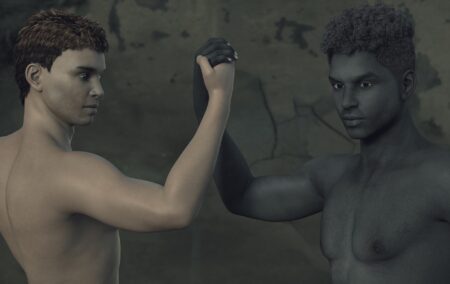Thuli Madonsela began her Nadine Gordimer Lecture at Wits University this week by dwelling on the difference between justice for everyone and, as she put it, ‘just-us’.
‘Just-us’ works as a neat rhetorical conceit but, as a sort of figurative doppelganger, it also rings with a warning about the risks of making selective claims on what we think is fair or what is just.
Most of us have little difficulty deciding what is fair and just for ourselves – but may find it harder to acknowledge that the same might not be fair and just for society as a whole.
Which is why the media attention the former Public Protector earned for responses to questions after her lecture – tellingly subtitled ‘The Audacity to Speak an Inconvenient Truth’ – is important to the debate about what a changed South Africa could be, and how to achieve it.
The weakness of exploiting race – as a measure of what must change, and as a tool to effect that change – is at the heart of it.
After some two decades of race-based policy, all of it justified on the grounds of fairness and justice, socio-economic data reveals lingering deficiency and disadvantage on virtually every measure.
That the deficiencies and disadvantages align so closely with the racial divisions imposed by apartheid-era law makes it easier for race nationalists to justify a redistributive model based on skin colour.
But the inconvenient truth that Madonsela had the courage to underscore is that it is failing.
She noted, for instance, that ‘I don’t think BEE was the right thing, I think BEE was a lost cause. BEE is corrosive to both black and white small businesses.’
She recalled being astonished to learn that a more-than-century-old mining corporate had been given a higher BEE rating than a 100% black-owned company.
‘Bizarre’
She described as ‘bizarre’ that, under BEE rules, ‘you are forcing a family-owned business to now have an artificially black partner’.
In the name of redress, South Africa had given ‘cover’ to nepotism and cronyism and deepened ‘polarisation’.
And, in the final analysis, using BEE as the foundation for empowerment had ‘if anything … reinforced white supremacy instead of undermining it’.
Perhaps most important of all was Madonsela’s caveat: ‘I’m not saying there shouldn’t be remedial measures, I’m not saying there shouldn’t be restitutive measures; I’m saying the model must be based on what kind of society are you creating.’
None of the points raised by Madonsela is new; the Institute of Race Relations, for one, has been making the argument for years and, more than that, refining workable alternatives.
It pleases opponents to imply that because we are against race-based empowerment we are against empowerment – or, put another way, that we automatically favour the status quo of a playing field magically levelled by the equality clause in the Constitution of 1996.
The irony is that it is the race nationalists who are guilty of keeping inherited injustice on life support.
As Madonsela said of BEE’s failure, ‘this monopoly game cannot continue as if no injustice happened …’.
I often call to mind former colleague Gwen Ngwenya’s incisive comments in a 2018 television debate in which she warned against the perception that ‘the government is there to engage in Robin Hood politics, to take from the rich or destroy existing institutions to accommodate everyone’.
‘Grow more’
‘The reality,’ she went on, ‘is that we were, in 1994, handed an economy and public institutions that were designed to serve a certain number of people, and the only way to proceed and create a country that can accommodate and cater to all people is to create more and to grow more.
‘There will never be harmony or stability if we think that we are going to redistribute our way out of our apartheid history. That can never be done … we are not going to share our way out – more has to be created.’
South Africans have many reasons to be despairing, but there should be no mistaking the importance, and the impact, of good arguments in the public square about how to change the country for the better.
If you like what you have just read, support the Daily Friend

